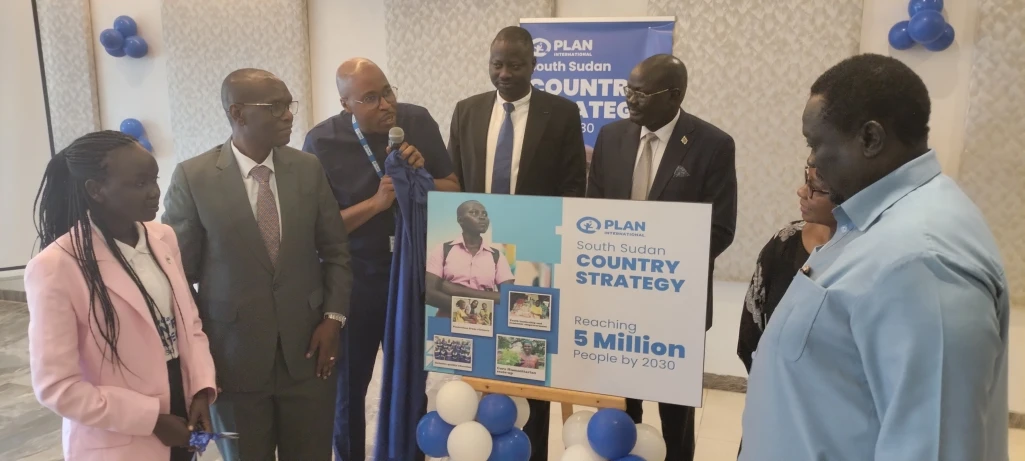
Plan International South Sudan has launched its 2025–2030
country strategy to empower 5 million young people through four key priorities
that include education, protection, economic empowerment, and humanitarian
response, with a strong focus on children and girls.
Plan International South Sudan has launched its 2025–2030
country strategy, outlining four strategic priorities focused on children and
youth, particularly girls, in education, protection, economic empowerment, and
humanitarian response.
Speaking at the launch, Country Director Paul Lusato said
the organization has a very ambitious yet achievable country strategy, with a
strong emphasis on children.
“Picture a young girl in South Sudan, full of dreams, eager
to learn, yet facing barriers beyond her control. Picture a young boy,
desperate for opportunities, yearning for guidance. These children are the
heartbeat of our nation,” Lusato said.
Lusato outlined the strategy's four key areas: inclusive
quality education, protection from violence, youth leadership and economic
empowerment, and humanitarian scale-up with cross-border programming.
Additionally, the strategy focuses on three advocacy
priorities: girls' education, ending child marriage, and empowering youth as
ambassadors for peace.
"We launched this country's strategy amid global
uncertainties, the funding constraints we all know, the global political and
economic instability, and the shifting humanitarian landscape,” he said.
“But in every challenge, there is an opportunity. South
Sudan has continually demonstrated resilience, and today, we renew our
commitment to adaptability, innovation, and bold actions to navigate these
complexities and remain steadfast in our mission."
Kachuol Mobil, Undersecretary at the Ministry of General
Education and Instruction, praised the strategic plan for its focus on girls'
education, child protection, youth leadership, and humanitarian response,
expressing hope for the country’s young generation.
“The launch of your new country strategy is more than a
document. It is a promise, a promise that no girl should be forced into
marriage and no child should be denied the right to quality education, clean
water, or a safe environment to grow,” Mobil underscored.
“As a government, we pledge to continue working with you and other partners, creating policies that protect children, investing in education, and opening doors for partnerships that bring lasting change.”
Minister of Agriculture and Food Security Hussein Abdelbagi
also stated that the strategy comes at a critical time when the country is
focused on sustainable recovery, development, and resilience.
He expressed support for strategic plan’s focus on
livelihoods and acknowledged that the strategy aligns with national goals,
emphasizing that its primary objective is to advance children's rights and
achieve equality for girls.
“This is a vision that we fully support, and as it speaks
directly to our national agenda of building a just and inclusive society where
no one is left behind,” Abdelbagi said.
“I particularly value the focus on livelihoods and
resilience, which align closely with our efforts to improve food security,
enhance rural development, and empower communities to achieve food and
nutrition security.”
The strategic plan aims to reach 5 million people by 2030, including 2 million women, 1.6 million children and young people, and 1.4 million girls and young women.